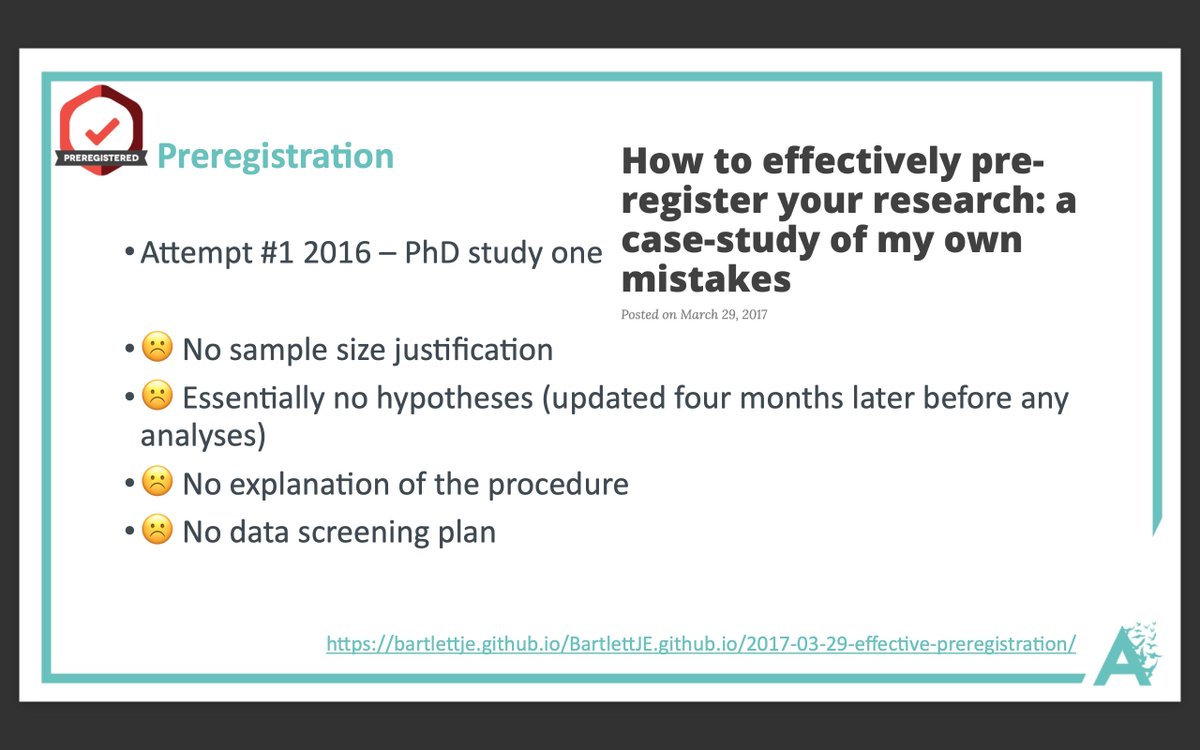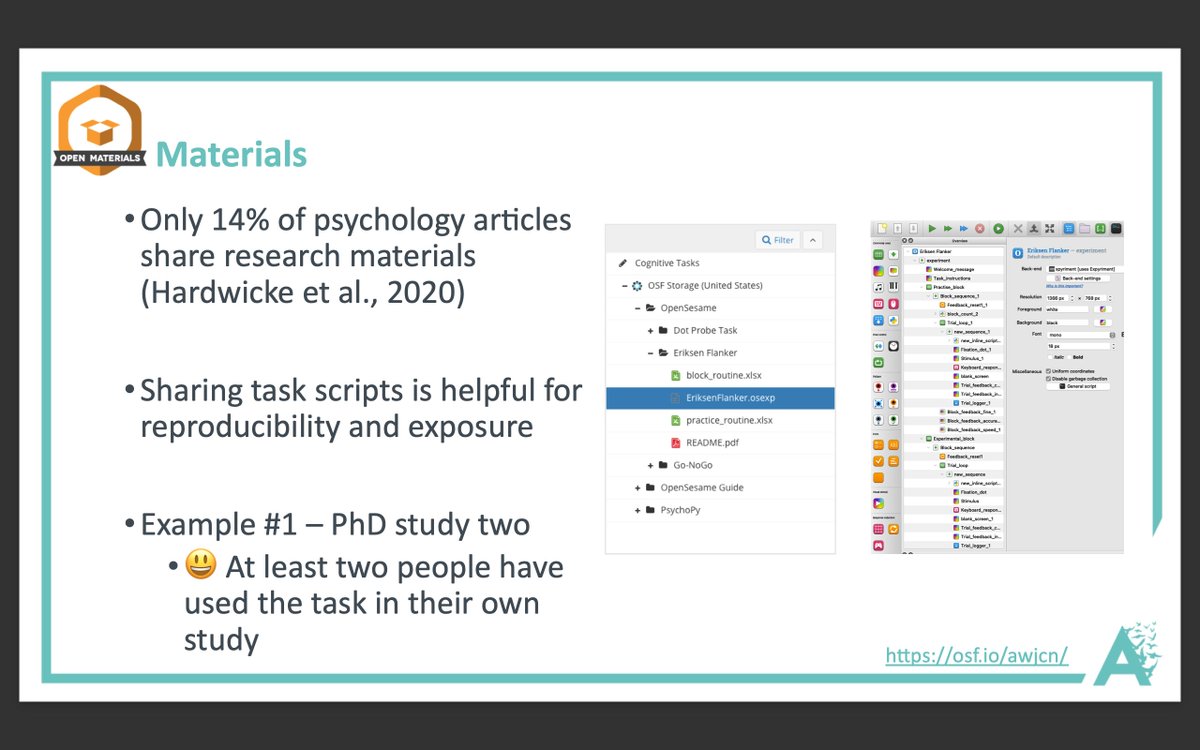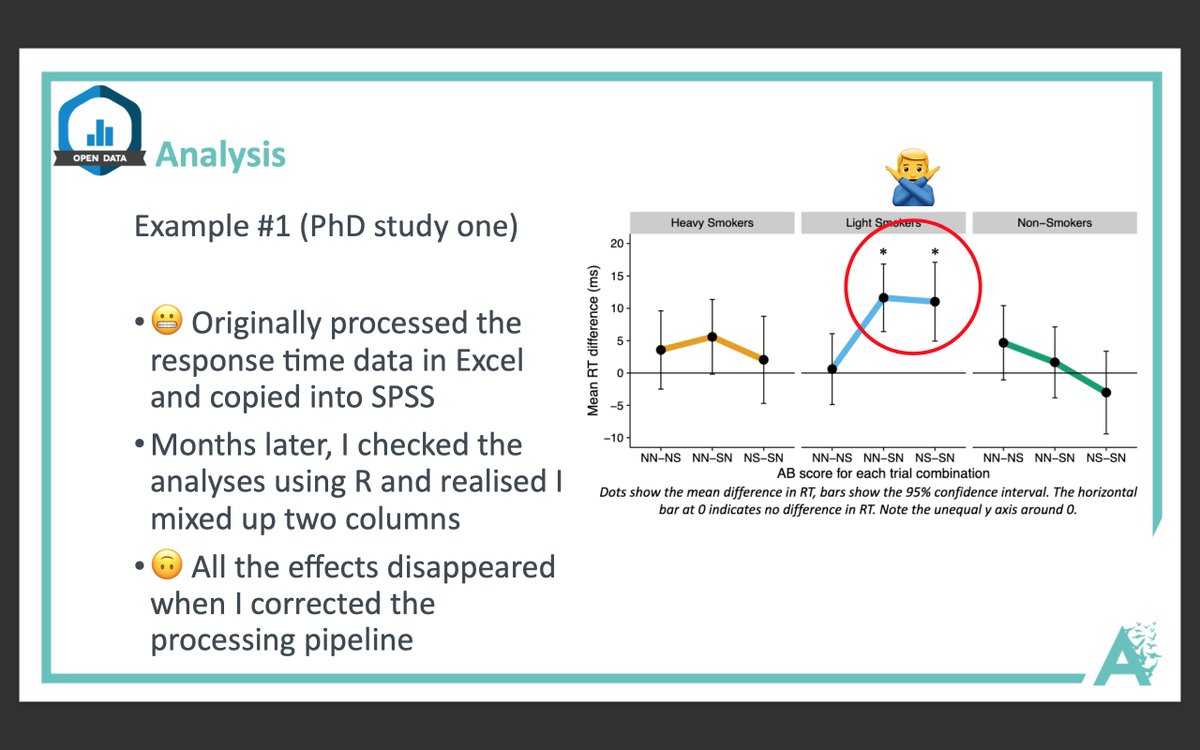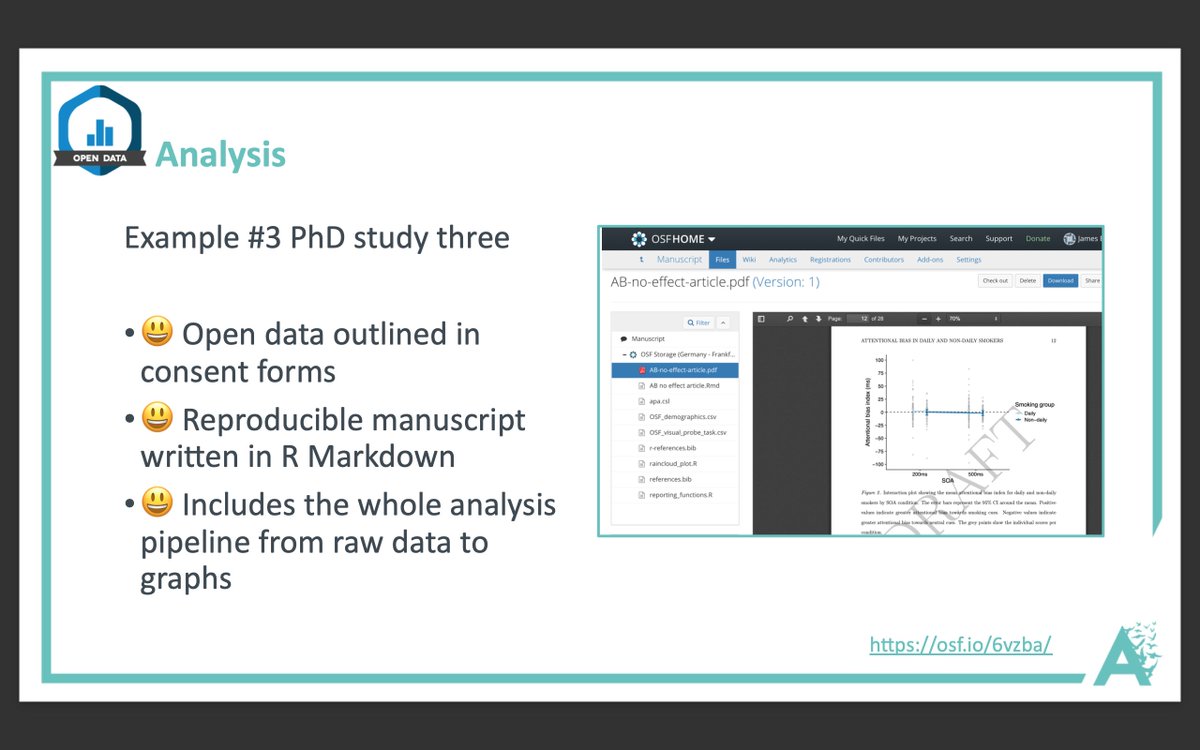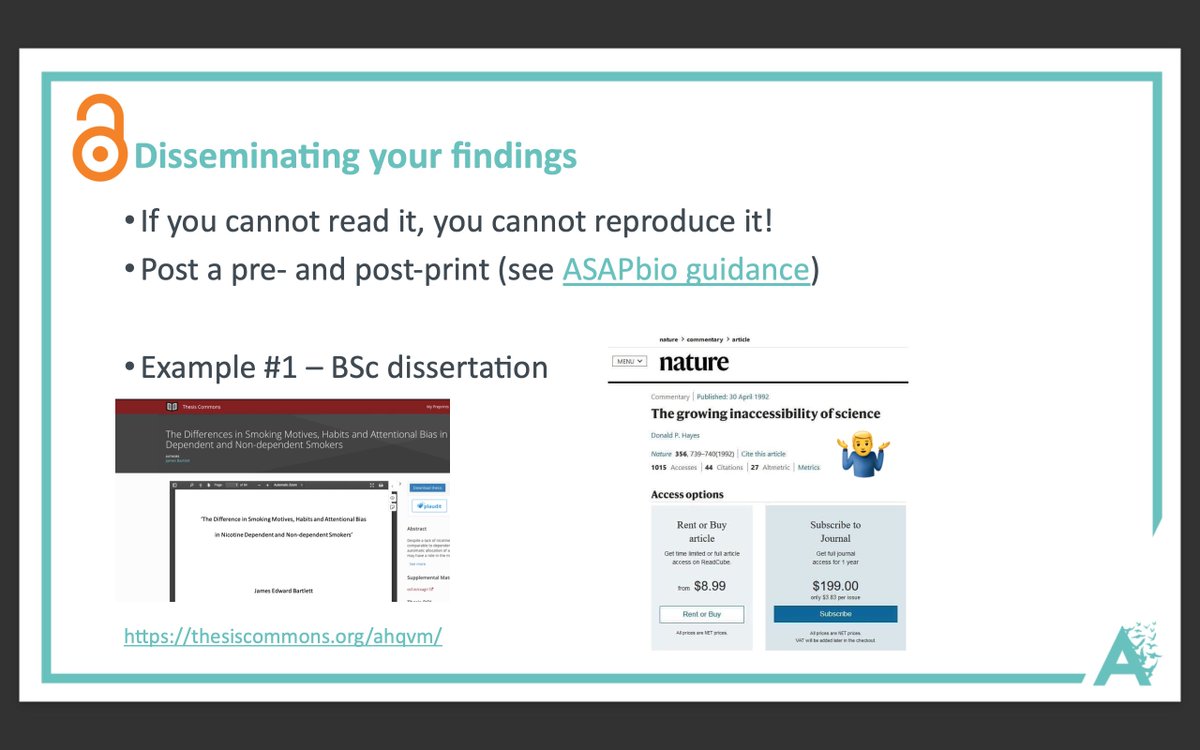It was great to talk about reproducible workflows for @riotscienceclub @riotscience_wlv. You can watch the recording below, but if you don't want to listen to me talk for 40 minutes, I thought I would summarise my talk in a thread: https://twitter.com/riotscience_wlv/status/1361809196409360398
My inspiration was making open science accessible. I wanted to outline the mistakes I've made along the way so people would feel empowered to give it a go. Increased accountability is seen as a barrier to adopting open science practices as an ECR https://pubmed.ncbi.nlm.nih.gov/33537552/
It also comes across as all or nothing. You are either fully open science or your research won't get anywhere. However, that can be quite intimidating, so I wanted to emphasise this incremental approach to adapting your workflow https://doi.org/10.1525/collabra.18684
There are two sides to why you should work towards reproducibility. The first is communal. It's going to help the field if you or someone else can reproduce your whole pipeline.
There is also the selfish element of it's just going to help you do your work. If you can't remember what your work means after a lunch break, you're not going to remember months or years down the line https://twitter.com/HirstRj/status/1359852884746252291?s=20
Pre-registration is super helpful, but it takes time to learn how to do it effectively. I had no support for my first attempt and it was awful. https://bartlettje.github.io/BartlettJE.github.io/2017-03-29-effective-preregistration/
Some aspects of open science can't be added at the end. If you want to share your data, it has to be planned from the ethics stage and your participants have to consent to it. Just remember not all data can be shared openly for ethical reasons.
Sharing materials is one of the easiest things you can do, but very few researchers do it. You can share your stimuli (providing there's no copyright issues) and your task scripts. If you use @GorillaPsyc, there is an open materials function making it super easy.
Double check your analysis pipeline, especially when the results support your hypotheses. I caught an error in my first PhD study before it was too late, but it could have been super embarrassing.
You don't have to go the full R Markdown manuscript route, but I recommend at least scripting any data processing. If you do make a mistake, at least that error is reproducible. You can also use intermediaries like @tidystats to embed results from R into your Word file.
Finally, if you can't read the article in the first place, you can't reproduce it. Most journals allow you to post pre/post-prints and you can upload your dissertation/thesis to Thesis commons. Just double check it's permitted by your target journal: https://v2.sherpa.ac.uk/romeo/
Hopefully, this seminar shows people fuck up from time to time. It's about learning from those mistakes and doing what you can to minimise them in future. Try making your workflow more reproducible one step at a time. It'll be worth it in the long-run for you and the community.

 Read on Twitter
Read on Twitter